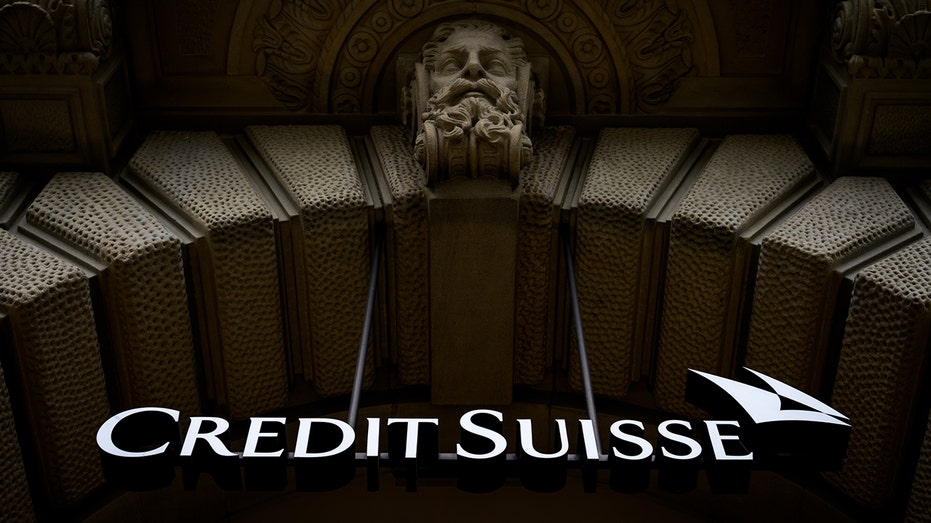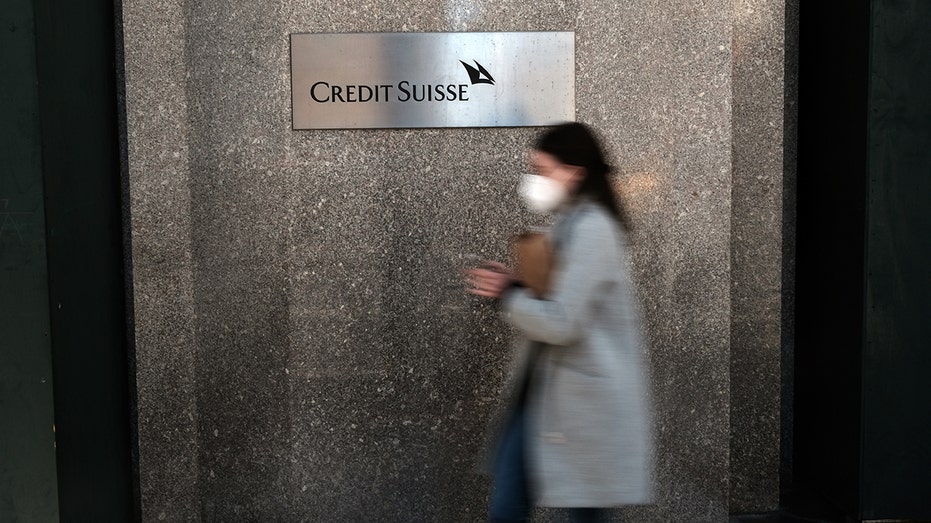Lawmakers launch probe of Credit Suisse compliance with Russia sanctions
Credit Suisse reportedly instructed investors in a recent deal to destroy information related to rich clients
Doocy presses Biden on statements regarding Russia-Ukraine
Retired Gen. Jack Keane discusses Biden’s speech in Poland and Fox New White House correspondent Peter Doocy pressing the president on ‘walking back’ certain statements on ‘Fox Business Tonight.’
U.S. lawmakers asked Credit Suisse Group AG to hand over information related to the bank’s compliance with sanctions over Russia’s invasion of Ukraine.
In a letter to Credit Suisse Chief Executive Thomas Gottstein Monday, Rep. Carolyn B. Maloney (D., N.Y.), chairwoman of the Committee on Oversight and Reform, and Rep. Stephen F. Lynch (D., Mass.), chairman of the Subcommittee on National Security, asked the bank to hand over information on its financing of yachts and aircraft owned by potentially sanctioned individuals.
They are seeking the information following reports that Credit Suisse instructed investors in a recent debt deal to destroy and erase information related to its dealings with rich clients.
UKRAINE SHOOTS DOWN RUSSIAN PLANES; RUSSIA RESPONDS TO BIDEN ON PUTIN: LIVE UPDATES
The debt deal, first reported by the Financial Times in February, reduced some of the bank’s exposure to $2 billion loans it made to wealthy clients to finance yachts and jets. The FT reported that a presentation for the deal said there were four loan defaults in the 2017-2018 period because of U.S. sanctions against Russian oligarchs. It later reported investors had been asked to destroy deal documents.

A picture taken on March 3, 2021 in Zurich shows a sign of Swiss banking Credit Suisse on their headquarters. (Photo by FABRICE COFFRINI/AFP via Getty Images / Getty Images)
"This report raises significant concerns about Credit Suisse’s compliance with the severe sanctions imposed by United States and its allies and partners on the architects and enablers of Russia’s brutal and unprovoked invasion of Ukraine, including Russian President Vladimir Putin and oligarchs in his inner circle," the committee chairs wrote.
A Credit Suisse spokesman declined to comment on the letter and pointed to the bank’s earlier comments on the deal and sanctions. On March 3 the bank said it had asked investors who hadn’t ended up participating in the deal to destroy documents, citing market practice, and that it had nothing to do with recent sanctions. It said no data was erased within Credit Suisse.
ELON MUSK WEIGHS IN ON WHETHER CHINA, RUSSIA COULD ‘TAKE OUT’ STARLINK SATELLITE SYSTEM
The lawmakers said they were particularly concerned that the instruction to destroy documents coincided with Switzerland saying it would join other countries in applying sanctions. There were also questions about whether investors in the deals had adequate information to comply with sanctions if any of the loans had been made to sanctioned people.
Earlier this month, Mr. Gottstein said Credit Suisse follows all U.S., U.K. and European Union sanctions as binding, and that Switzerland applying them Feb. 28 was "almost irrelevant."

A woman walks by the Credit Suisse offices on March 29, 2021 in New York City. Major global banks, including Credit Suisse, are preparing to be hit with billions of dollars in losses after the US hedge fund Archegos Capital defaulted on margin calls (Photo by Spencer Platt/Getty Images / Getty Images)
Credit Suisse has acknowledged freezing $5 billion in client assets in 2018 to comply with earlier sanctions imposed over Russia’s aggression in Ukraine. It disclosed up to $1.1 billion in exposure to Russia earlier this month and said exposure to sanctioned individuals was minimal.
CLICK HERE TO READ FOX BUSINESS ON THE GO
The committee wants to review a list of the investors in the deal, as well as documents pertaining to Credit Suisse’s due diligence on the deal and its underlying assets in relation to sanctions. The committee requested all communications and documents relating to any instructions to destroy the deal-related information, as reported by the FT. The lawmakers also are seeking any bank communications with the owners of the underlying assets.
In the letter, the committee asked Credit Suisse for documents dating back to Jan. 1, 2017, by April 11.




















